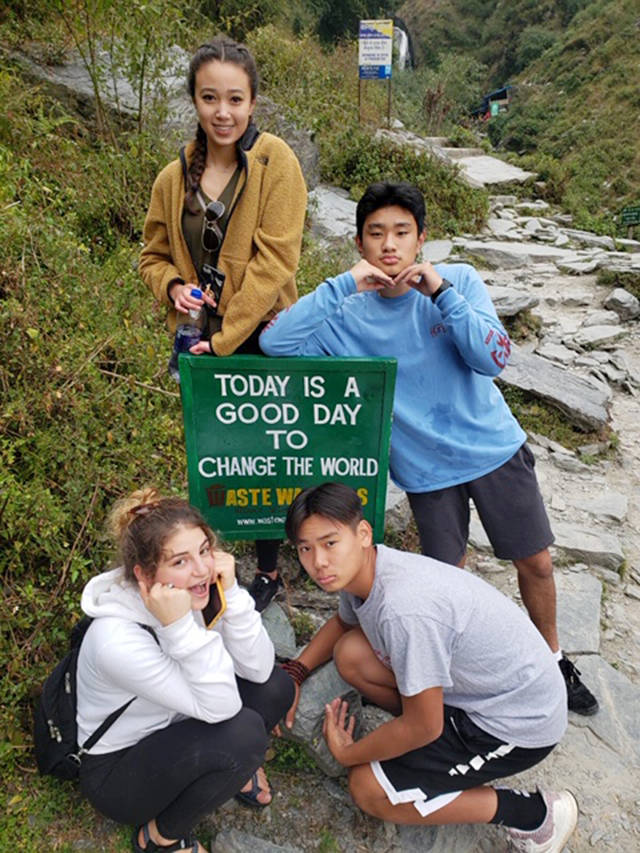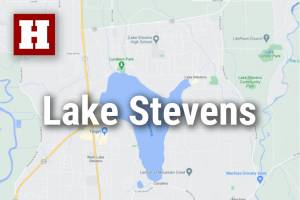This Edmonds HS student went to India to meet the Dalai Lama
Published 1:30 am Monday, January 6, 2020





EDMONDS — Kaylee Meyers, 14, had a good excuse for missing more than a week of school.
She went to India and met with the Dalai Lama.
The Edmonds-Woodway High School freshman was among six students from across the state selected to join the Washington delegation to Dharamsala, India, in November for the Compassion 2020 program.
The students, known as “Compassion Scholars,” joined a delegation with Lt. Gov. Cyrus Habib, business leaders and educators to learn from the Dalai Lama and the Tibetan community in exile about compassion.
Scriber Lake High School Teacher Marjie Bowker, known for leading student writing projects, was instrumental in organizing the trip and also served as a teacher chaperone.
About 160 students applied for the trip, which entailed a commitment to do a compassion project. Also selected was Sontri Jorkhang, 15, a Shorewood High School sophomore. “I’m creating different types of merchandise, whether that be T-shirts or hoodies, that have positive messages on them … and give the funds to nonprofit organizations,” Sontri said.
The Dalai Lama is a Buddhist leader and advocate for understanding, kindness and compassion, respect for the environment and world peace. He has a Facebook page with 14 million followers and has 19 million Twitter followers @DalaiLama.
Kaylee lives in Edmonds with her parents, Debbie and Tom, and her brother, Ian.
Question: When and how did you apply for the trip?
Answer: I was in middle school. I had to write my application and this included essays. I don’t remember the exact questions, but they were like: What is compassion, what does compassion mean to you? What can you contribute to this group? And what would your compassion project involve?
Q: Did you know much about the Dalai Lama before you applied?
A: I had a little amount of knowledge. I knew he was a spiritual and religious leader.
After I got accepted they sent each of us a book, “A Call for Revolution.” I learned more about his ideas and his beliefs through that book. It was enlightening.
He has books on why compassion is important and why you need to be appreciative with what you have, enjoy your time on Earth, be the best you can be.
Q: What was it like being around him?
A: When you are in his presence everyone feels more calm. He was such a calm and comforting person.
Q: What is your project?
A: I am going to be creating a compassion club and maybe implementing a compassion curriculum in our school, maybe our school district. That is my goal.
Q: What do you say to the Dalai Lama?
A: Each of the students presented their compassion projects. The Dalai Lama was directly in front of us. Mine, I explained, was a service project and implementing a compassion curriculum.
Q: What question would you have liked to ask him?
A: Maybe something like, how do you inspire others who don’t want to be inspired? Something about compassion because he’s obviously an expert in that field.
I don’t know how to inspire someone who is vehement on their perspective or who is small-minded or who doesn’t want to learn about the other side.
Q: What did he say to your group?
A: He explained why compassion is important in this generation.
He said although schools teach subjects like math and science and English we’re still going to have huge issues like war, violence, injustice and discrimination, and you can’t change that unless you educate the future generation.
Q: Did you take something to give him?
A: My mom thought it would be a good idea to have all the students make something for the Dalai Lama. I thought it was brilliant. We didn’t have much time so I wasn’t sure how I’d execute that plan. Her idea was to make a scarf. We researched his favorite color and ended up presenting him with a yellow scarf. It’s a happy color.
Q: What else did you do on the trip?
A: We went to markets. We had amazing food. We saw cows who literally stopped traffic. Cows came first.
Horses were on the side of the road. The monkeys were amazing. One of the students fed a monkey off the balcony. It was really cool. We never see monkeys in Washington.
Q: Best part of the trip?
A: Besides meeting the Dalai Lama my favorite part was going to a Tibetan Children’s Village. It’s almost like an orphanage. They had very, very little. They were actively grateful, every day, every minute.
A lot of people in Washington aren’t grateful for what they have, or maybe there are, but they don’t appreciate every small detail.
We met people from the Tibetan Parliament. We met the acting president. We went to a lot of meetings. It was really cool.
Q: What was India like?
A: India is a completely different culture. Everything about it is different from Washington. The sounds. The smells. Absolutely everything.
The sounds were different from Washington, a lot of chatter. A lot of different animals. The colors were amazing. They were all vibrant and bright. Seattle is gray and dull, at least in comparison to India.
There was a lot of talking all the time. It was always busy. The only time I felt like it was peaceful and serene was when I woke up extra early at 5 in the morning and I watched the sunrise from our balcony.
Q: How has this trip changed your life?
A: Many, many ways. It showed me how I can apply this in future projects, help with my leadership abilities, help me spread the word about compassion.
Q: How do you top this?
A: I’m not sure. This was an amazing opportunity.
Andrea Brown: abrown@heraldnet.com; 425-339-3443. Twitter @reporterbrown.









